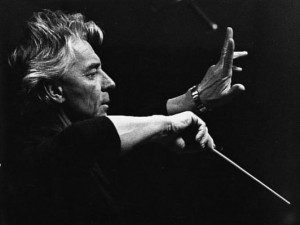Johannes - Passion a.k.a. St. John Passion

Composer: Johann Sebastian Bach
Genre: Oratorium
Formation: Orchestra, 4-part choir and solist voices
Year: 1724
Country: Germany
--------------------
The day of the creation of this thread was not chosen by chance. Today is the birthday of the greatest of the greatest composers of all time: Johann Sebastian Bach.
Johannes-Passion is one of my favourite pieces of music written by this colossal name of the Classical Music and one of the most respected works of all time.
Why/when was it composed?
Bach was an extremely religious man. He believed the aim of music should always be the prasing of God. This intense belief combined to a unique mind produced some of the most amazing music of all time.
When he wrote this Passion he was at his first year in Leipzing, working as the chapel master. It marked the beggining of a time of intense production, because he had to produce a different Cantata (vocal composition with orchestral accompaniment) almost every week and make different music for every religious holiday. He kept this position till the day he died, 26 years later, so you can imagine how much stuff he wrote.
Johannes - Passion was premiered at the Good Friday Vespers of 1724, so around this time 292 years ago.
Structure: Johannes-Passion tells the story of Passion of Christ, from the moment he is arrested till the moment he's buried. It's divided into 2 parts (in the middle of which there is supposed to be a sermon), with a total of 40 different movements, some of them divided into even smaller sections.
The central figure of this work is the Evangelist (one of the most famous tenor parts in Classical Music) that narrates the story in a
recitative mode. Other characters are Jesus, Pilatus and the Choir, representing the crowd. These narrative process is sometimes interrupted by chorales, one of the most beloved traits of Bach's work, which serve as a philosophical analysis of what's happening in the narration.
The version I chose:
Choosing a favorite version of this masterpiece is a very difficult task. I sang it myself as a part of the choir a couple of times and I'll probably sing the Pilatus role in 2017, so I know lots of different interpretations.
I ended choosing this version, conducted by Herreweghe and with the choir of the La Chapelle Royale. I like its tempo (though some people will say it's too slow) and stylistic choices, the choir is great and the Evangeliste, Howard Crook, is superb. The rest of the soloists also are very very good.
It's a very big work, with almost 2 hours, but trust me, it will take you to another world. The first movement alone is out of this universe...





 low notes rock! Ahahah!
low notes rock! Ahahah!






